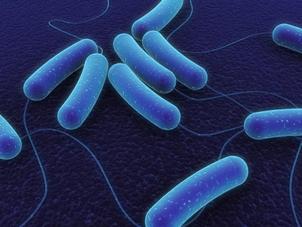 Biologists previously thought that when bacteria were encapsulated by a neutralizing lysosome, these only degraded the invaders, but scientists have now discovered that bladder cells can also simply "throw up" those capsules that have failed to neutralize their contents. The natural defense provided by bladder cells against Escherichia coli bacteria behind most urinary tract infections (UTIs) involves physically ejecting those that have invaded host cells and escaped acid destruction. The laboratory discovery, published in Cell, a journal for fundamental biology research, suggests an avenue of scientific investigation into ways of capitalizing on this natural tendency, to help treat recurring UTIs. Senior author Soman Abraham, PhD, from the Duke University School of Medicine in Durham, NC, explains: "Because E. coli are able to hide inside of the bladder cells, it's especially difficult to treat UTIs with regular antibiotics. "So there is increased need to find new strategies for treatment, including co-opting any preexisting cellular tactics to combating infection." The professor in Duke's departments of pathology, immunology, and microbiology and molecular genetics is also professor in the emerging infectious diseases program at the Duke-National University of Singapore. He suggests the financial importance of work against urinary tract infections: "The cost for managing UTIs in the US is close to $3 billion annually." Urinary tract infections - the vast majority of which are caused by E. coli - come near the top of the list for our most common types of infection, according to information from the National Institutes of Health. Because of their anatomy, which allows easier access for the bacteria to reach the bladder, women are more prone to UTIs than men, but around 8.1 million visits to health care providers each year are blamed on these infections overall. Acid envelopes that failed to degrade bacteria were simply ejectedThe basic strategy identified by the biologists was for bladder cells to hit the ejector button on those acid envelopes that the bacteria had successfully survived. The first tactic called on against E. coli by bladder cells is the normal first line of cellular defense - autophagy - or eliminating pathogens that have entered the cell by encasing them and shuttling them off to lysosomes. The acidic environment of lysosomes - "capsular cauldrons," as the Duke researchers call them - destroys pathogens. But on entering the lysosome, some pathogens have the capacity to neutralize the acidic environment. The authors discovered, however, that host cells are able to sense when lysosomes have been affected in this way, and trigger ejection of the lysosome contents and bacteria - but with the pathogens seemingly encased in a cell membrane, "presumably" ensuring their elimination in urine and avoiding any bacterial reattachment to the bladder wall. The findings of the study come from laboratory work with mouse models of UTIs and human bladder cells used in culture. First author Yuxuan Miao, a doctoral candidate in Duke's department of molecular genetics and microbiology, says: "When the cells have trouble digesting the materials in the lysosomes, a logical way to get rid of this potential hazard is to throw it up. It was thought that lysosomes always degrade their contents. Here we are showing for the first time that when the contents cannot be degraded, the lysosome appears to have a back-up plan, which is to expel the contents in capsules." The hope of the researchers is that the new biology will help in identifying chemical targets to accelerate and amplify the bladder cells' own bacterial expulsion tactics.
0 Comments
Leave a Reply. |
Σχετικά
Με το ιστολόγιο αυτό επιχειρείται η κατά το δυνατόν άμεση ενημέρωση σε θέματα που αφορούν ουρολογικές εξελίξεις και δίνεται η δυνατότητα σχολιασμού των αναρτήσεων. Κατηγορίες
All
|
|
Ιατρείο Λαγκαδά: Δ. Μήλιου 24 (έναντι 1ου δημοτικού), Λαγκαδάς
Τ: 2394 020 780, Κ: 693 63 23 794 |
Όροι Χρήσης | Επικοινωνία | Copyright © 2013
 RSS Feed
RSS Feed